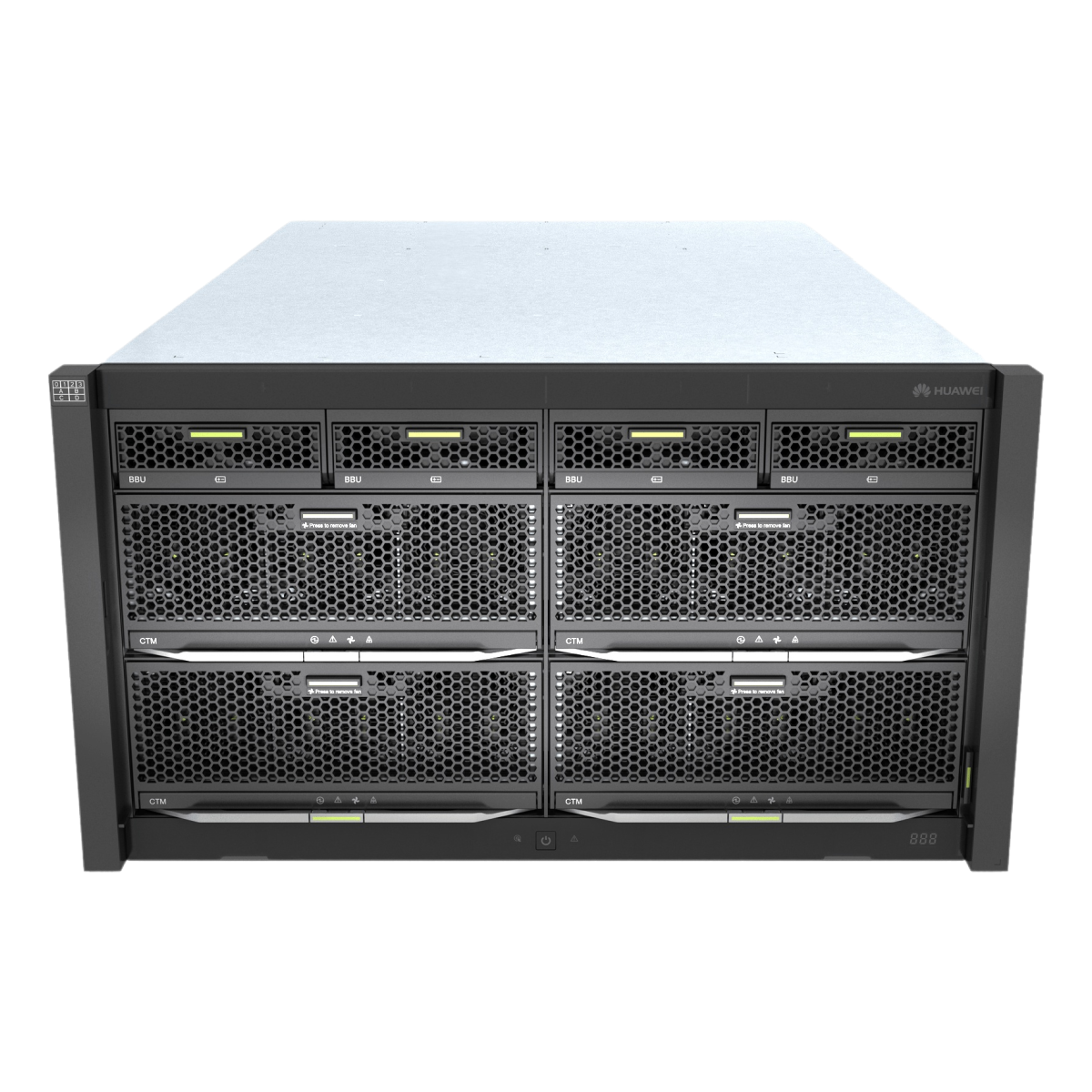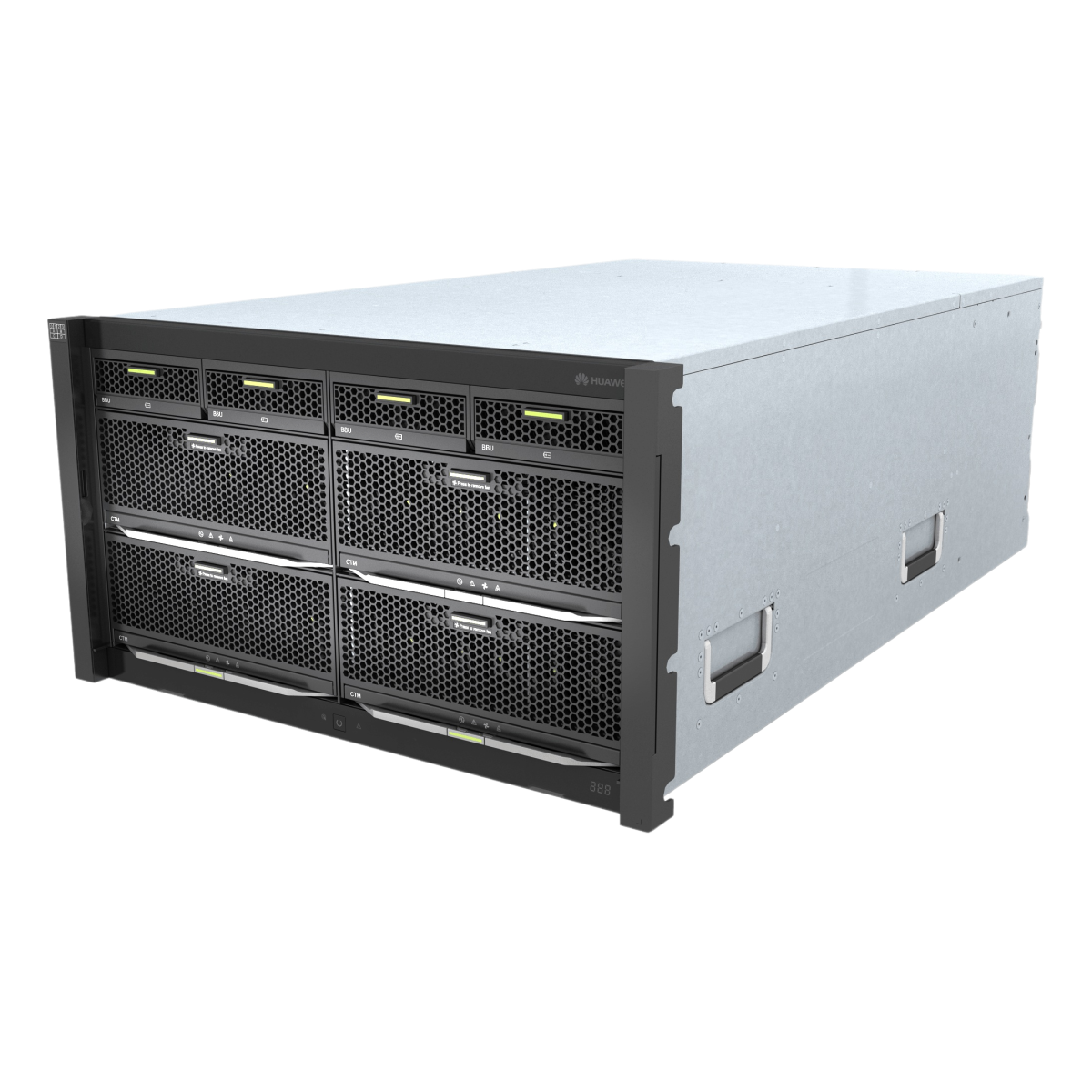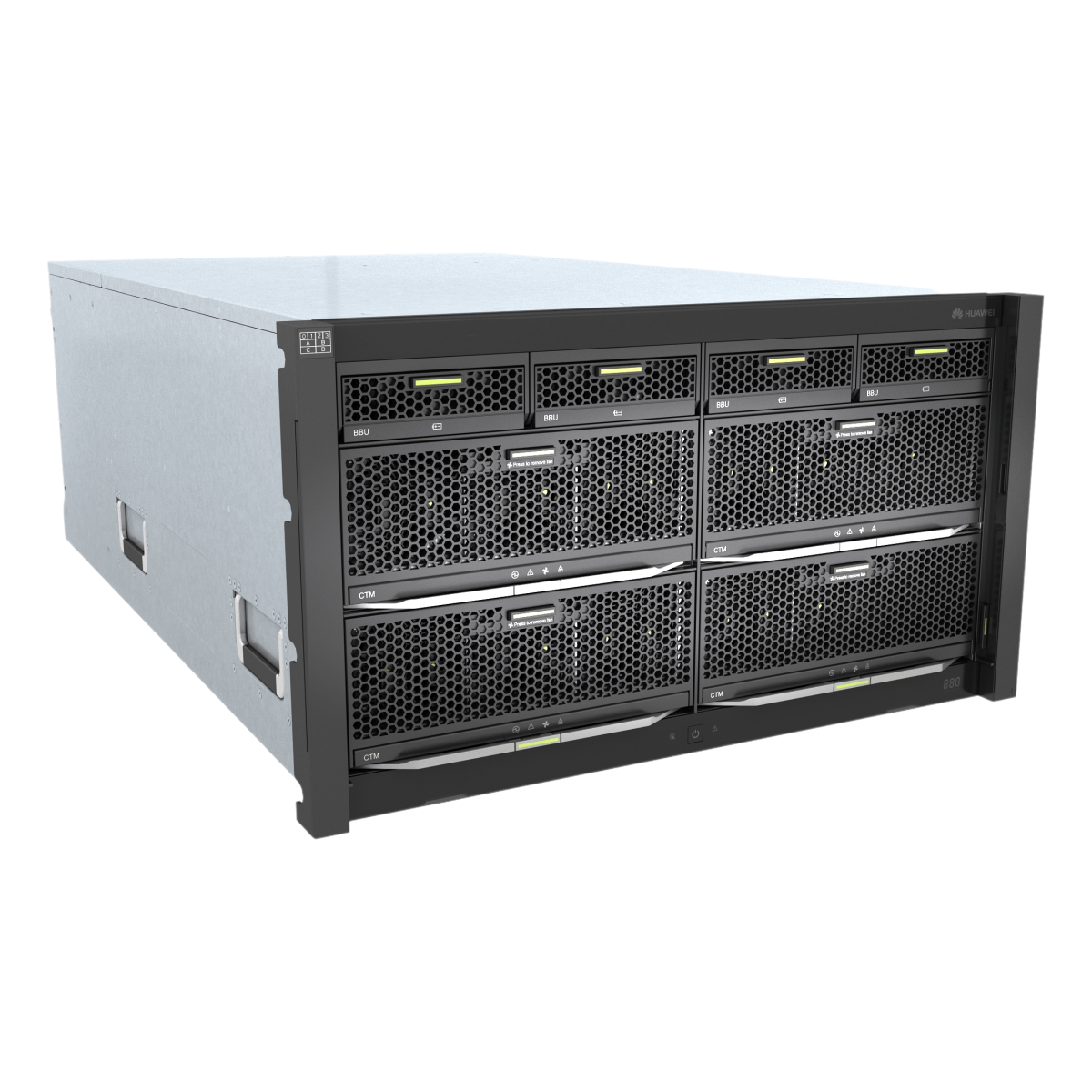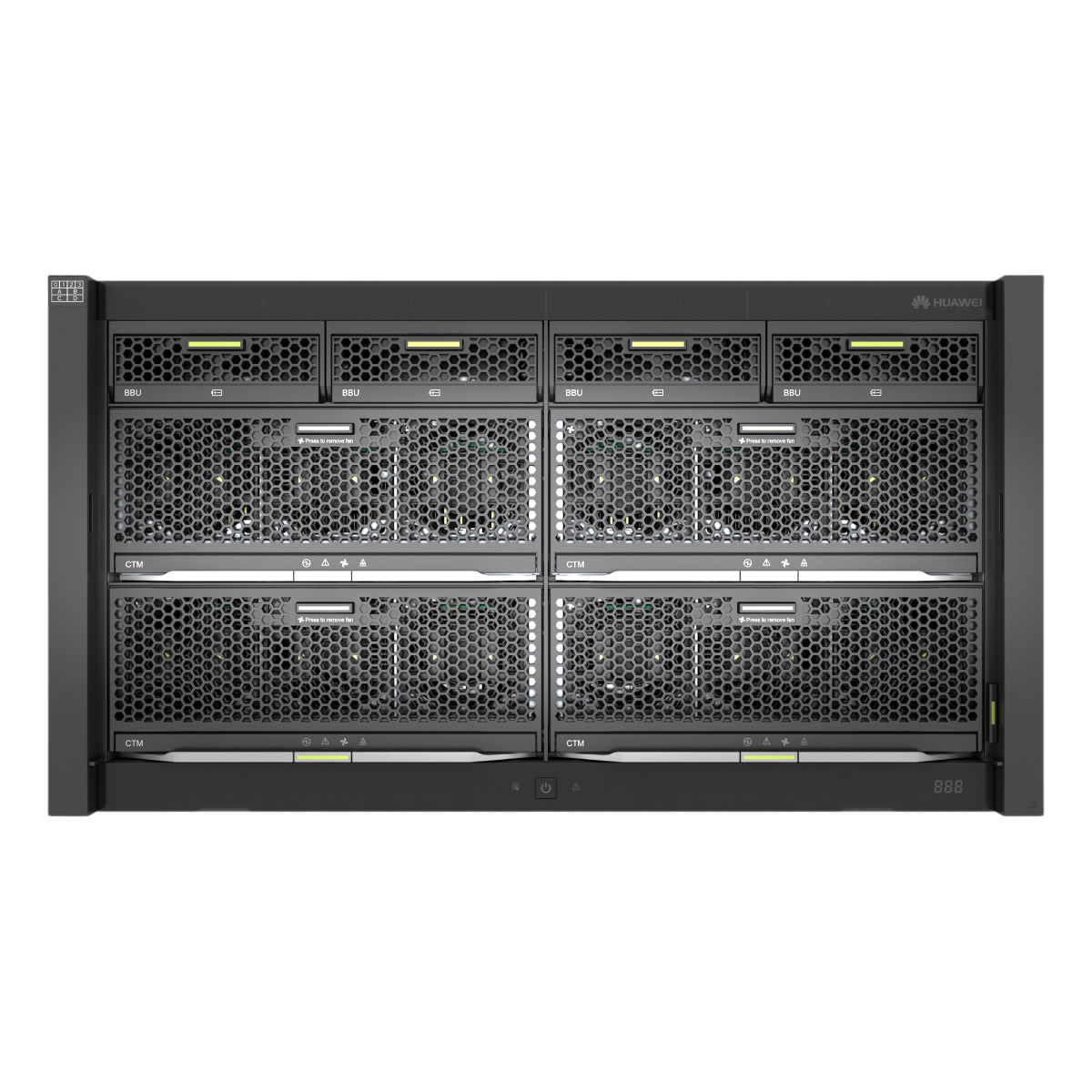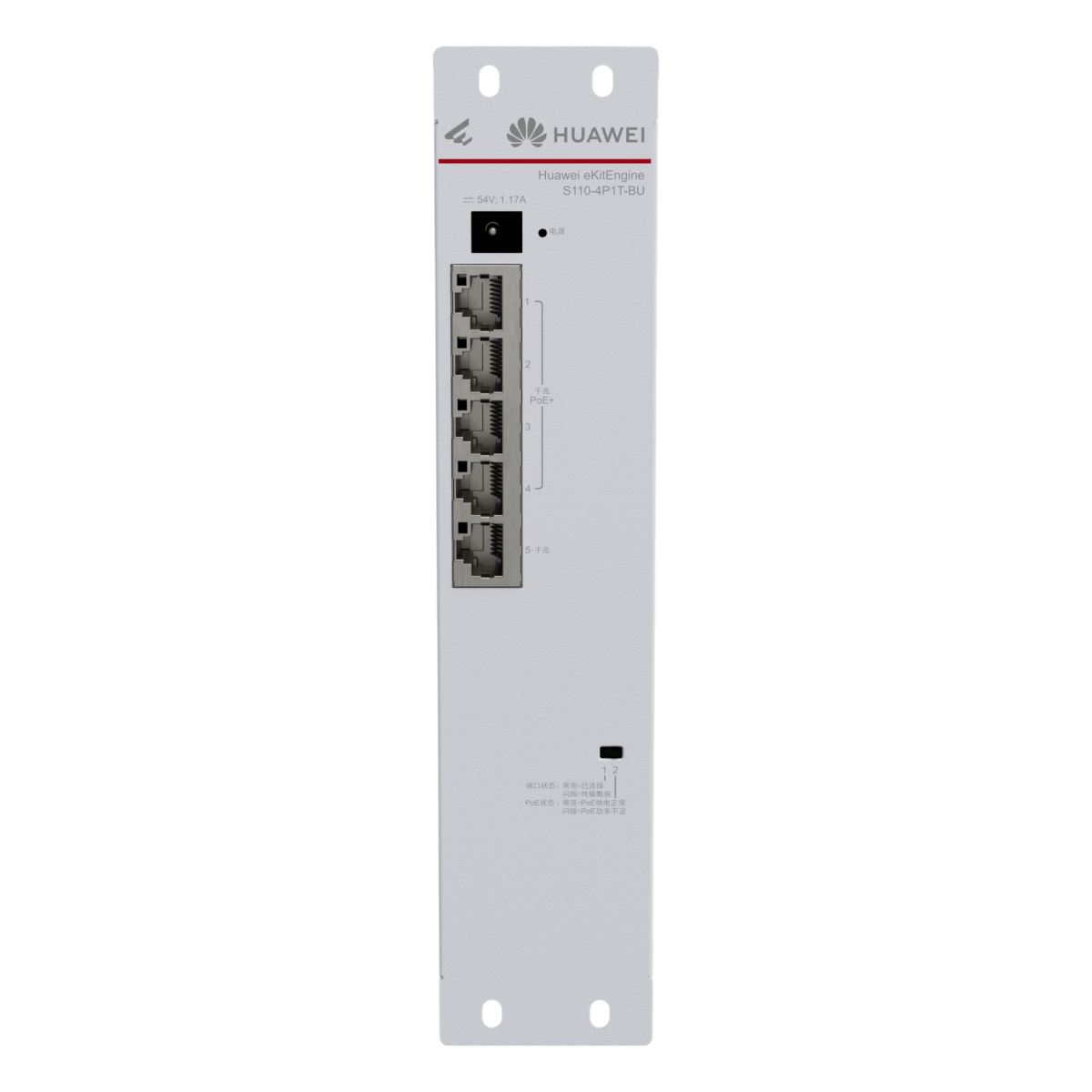The OceanStor 18500 V5 is a mission-critical storage system designed for enterprise-grade flexibility and scalability. Its SmartMatrix 2.0 architecture provides high performance, redundancy, and data protection for demanding workloads. With support for various interfaces and a large capacity, it seamlessly integrates into existing data centers.
Condition: NOB
RMA Warranty
Description
The OceanStor 18500 V5 series storage system is designed for enterprise-grade flexibility and scalability thanks to its SmartMatrix 2.0 architecture. This innovative design features a horizontal expansion system with multiple engines, each housing up to four controllers, allowing for increased performance and redundancy. With up to four system bays and twenty disk bays, the system seamlessly integrates into existing data centers, enhancing their efficiency and capacity. The OceanStor 18500 V5 series caters to a diverse range of enterprise workloads, including OLTP/OLAP, HPC, digital media, internet operations, centralized storage, backup, disaster recovery, and data migration.
Product Features
The OceanStor 18000 V5 series employs high-grade hardware, innovative SmartMatrix 2.0 architecture, virtualized intelligent volumes, and multiple resource management and data protection technologies. The series is committed to providing secure, trusted, flexible, and efficient core storage solutions for enterprise-class data centers.
Trusted, Ensuring 24/7 Availability for Core Services
The OceanStor 18000 V5 series adopts SmartMatrix 2.0 architecture that provides full switching, full virtualization, full redundancy, and inherent load balance. The architecture integrates with advanced data protection technologies such as end-to-end data integrity, memory error checking and correcting (ECC), and transmission channel cyclic redundancy check (CRC) to boost mission-critical services of medium- and large-sized data centers. The advanced hardware and various data protection technologies enable linear storage performance growth, 24/7 storage service, and high system security.
- Innovative SmartMatrix 2.0 architectureA full-switching hardware architecture with the mission critical storage-dedicated OceanStor OS operating system meets most stringent reliability, performance and capacity requirements.
- Full redundancyIntelligent redundancy technology is implemented for all hardware components in the storage system, ensuring service continuity in harsh scenarios.
- RAID 2.0+ technologyRAID 2.0+ technology achieves load balance across disks, and accelerates data recovery by 20 times.
- Intelligent protection dedicated to core servicesThe SmartQoS and SmartPartition features provide advanced protection for core services.
- Complete disaster recovery solutionThe Hyper series management software suite provides a complete data protection strategy and disaster recovery solution.
- Data protection in the event of a controller failure
- Built-in backup battery units (BBUs) supply power to controller enclosures in the event of unexpected power failures. BBUs enable cache data to be written to built-in disks of controllers to avoid data loss.
- When a piece of software is faulty, the storage system will attempt to reboot. During the reboot, data is stored in the cache. If the reboot fails, data in the cache will be written into the built-in disks of controllers to avoid data loss.
- If hardware of a controller is faulty, the storage system will use the memory mirroring technology to enable the other normal controller to take over the services to ensure data consistency.
- Online disk diagnosisThe online disk diagnosis feature is used to handle disk faults. If a disk fault occurs, the storage system takes the disk offline. Then, the online diagnosis module reads the S.M.A.R.T information about the disk and takes analysis, testing, and recovery measures. After the disk is recovered, the online diagnosis module enables the disk to rejoin the RAID, prolonging the lifecycle of the disk.
- Data coffer diskData coffer disks consist of the first four disks of a storage system’s disk enclosure as well as each controller’s built-in disks. They store three types of data: cache data requiring power failure protection, OceanStor OS system data, and system configuration information and logs.
- Hot-swappable componentsControllers, fans, power supplies, interface modules, BBUs, and disk modules are hot swappable and can be operated online.
- Quick document incremental backup with Tivoli Storage Manager (TSM)When the storage system interworks with the TSM backup software to perform incremental file backup, the Snapdiff feature uses the snapshot mechanism to quickly obtain differential file information and identify changed files. Without the need for full scanning, only changed files are backed, greatly shortening backup time. The backup performance is not affected by the number of files, which greatly improves the backup efficiency.
High System Security
Storage network security:
- Security of management channelsManagement operations from physical ports are controlled by a storage system’s access authentication mechanism, and only authorized users are allowed to manage the storage system.
- Anti-attack protection for protocols and portsThe storage system provides only necessary ports to the external for system operations and maintenance. All the ports used are listed in the Communication Matrix. Dynamic listening ports are functioning in the proper scope, and no unopened port exists.
- Isolation between service ports and management portsThe Access Control List (ACL) mechanism is adopted to isolate Ethernet ports from internal heartbeat network ports, management network ports, and maintenance network ports.
Storage service security:
- Security of the operating systemThe storage system uses a dedicated operating system. Its security has been hardened prior to delivery. The storage system updates security patches for its operating systems and open-source software based on site requirements, thereby safeguarding users’ data.
- Encrypted data transferVirtual private network (VPN) devices are used to establish an internet small computer system interface (iSCSI) transfer channel between two storage devices. Data transferred between storage devices is encrypted to ensure privacy and security. Encrypted data transfer can apply to service data transfer in using value-added features, such as LUN copy, synchronous remote replication, and asynchronous remote replication.
- Data storage encryptionThe storage system supports disk encryption. The hardware circuits and internal data encrypt key of disks are used for data writing encryption and data reading decryption. To ensure the security of the data encrypt key, the storage system and the third-party key management server jointly provide a highly secure, reliable, and available key management solution.
- Data destructionWhen deleting unwanted data, the system erases the specified LUN to ensure that the deleted data cannot be restored, preventing critical data leaks.
- File antivirusWhen the storage system runs a file system and shares the file system with clients through CIFS, third-party antivirus software can be used to trigger virus scanning and delete virus-infected files, improving storage system security.
Storage management security:
- Security of management and maintenanceThe operations of users can be allowed and denied. All management operations are logged by the system.
- Data integrity protection and tamper resistanceThe Write Once Read Many (WORM) feature allows users to set critical data to read-only state, preventing unauthorized data change and deletion during a specified period of time.
In addition, trusted verification is enabled during the storage system startup to measure and verify BIOS > Grub > Euler Linux Kernel > Euler Linux > Storage application software level by level to prove integrity of loaded software at each level and to prevent software tampering. The storage system’s power-on process will be verified to ensure that the system is not tampered with.
Flexible, Meeting Future Challenges
- The OceanStor 18000 V5 series possesses a comprehensive 4S scalability: scale-up, scale-out, scale-deep, and scale-in. The 4S scalability dynamically improves system performance and capacity to meet the increasing services.
- Scale-upIncreases the storage capacity and performance of controllers.
- Scale-outEnables linear performance increase with the storage space.
- Scale-deepImplements consolidation with third-party storage devices.
- Scale-inFully explores the potentials of a storage system to improve the performance and storage capacity of host volumes without adding any hardware resources and let the storage system be infinitely adapted to service needs.
- The OceanStor 18000 V5 series employs an intelligent three-dimensional (3D) data flow technology. That is, data intelligently flows vertically, horizontally, and among devices. This technology enables all-directional data flow, boosting overall disk resource utilization by times, and maximizing ROI for customers.
- Intelligent vertical data flowThe SmartTier feature identifies hot and cold data and migrates them to suitable storage tiers. In this way, data flows among different storage tiers in the storage pool and storage resources are fully utilized.The SmartCache feature uses solid state drives (SSDs) as caching storage resources. It accelerates system read performance in scenarios of hot data and random small I/Os with more reads than writes.
- Intelligent horizontal data flowThe SmartMotion feature automatically balances data distribution within disks in the same storage tier to avoid system bottlenecks caused by hotspot disks, improving disk utilization and the overall disk reliability.
- Intelligent data flow among devicesThe SmartVirtualization feature simplifies the storage system management, improves the resource usage, and maximizes customers’ return on investment (ROI) by integrating the resources on heterogeneous storage arrays and providing unified storage to application servers.
- The OceanStor 18000 V5 series easily adapts to virtualization trends. The fully virtualized software architecture with wide support for open standards improves the working efficiency, data protection, and management capability in virtual environments.
- The OceanStor 18000 V5 series employs data reduction technology to find and process redundant data on disks, which improves disk utilization efficiently.
- The OceanStor 18000 V5 series employs multiple resource application technologies and provides flexible resource management to protect customers’ storage investments. The resource application technologies include SmartVirtualization, SmartMigration, and SmartMulti-Tenant.
- SmartVirtualization enables a local storage system to centrally manage storage resources of third-party storage systems, simplifying storage system management and reducing maintenance costs.
- SmartMigration migrates LUNs or file systems in or between storage systems, adjusting and allocating resources along with business development.
- SmartMulti-Tenant enables a storage system to provide different tenants with shared storage resources and to separate tenant access and management.
- The OceanStor 18000 V5 series provides flexible management approaches such as using tablets for management.
Intelligent O&M
The eService intelligent cloud management system (eService for short) improves customers’ O&M capabilities and takes planned maintenance actions to prevent potential risks.
Being authorized by customers, eService monitors device alarms in 24/7 mode. Whenever an alarm is detected, eService automatically notifies Huawei technical support center and creates service requests (SRs). Huawei service engineers will help customers solve problems in a timely manner.
- eService provides a self-service O&M system for customers, aiming for precise and customized information services.
- Based on HUAWEI CLOUD, the eService cloud system drives IT O&M activities via big data analytics and artificial intelligence (AI) technologies to identify faults in advance, reduce O&M difficulties, and improve O&M efficiency.
- Data is encrypted during the data transmission, ensuring secure data transmission. eService can access the customer’s system only after being authorized by the customer.
- eService provides 24/7 secure, reliable, and proactive O&M services. SRs can be automatically created.
- Customers can use any PC to access eService at any time and any place to view device information.
eService enables the client system to work with the cloud system.
- eService client system:
Deployed on the customer side, the eService client system collects customer device alarms and sends them to the eService cloud system in a timely manner to implement remote maintenance functions, such as remote inspection and remote log collection.
- eService cloud system:
Deployed in Huawei technical support center, the eService cloud system receives device alarms from the client system in 24/7 mode, automatically notifies Huawei technical support personnel to handle the alarms in a timely manner, and supports automatic inspection and log collection for devices on the customer side.
|
Item |
OceanStor 18500 V5 |
OceanStor 18800 V5 |
|---|---|---|
|
Processors per controller |
2 x 14-core processor |
|
|
Memory size of a controller |
|
|
|
Maximum number of controllers per enclosure |
4 |
|
|
Maximum number of controller enclosures |
4 |
|
|
Maximum number of disks |
|
|
|
Controller configuration |
6 U controller enclosures without disks |
|
|
Type of supported disk enclosures |
|
|
|
Maximum number of disk enclosures |
|
|
|
Maximum number of disk enclosures connected to back-end channels (ports) |
|
|
|
Supported disk types |
SAS, SSD, and NL-SAS |
|
|
Types of hot-swappable front-end interface modules |
|
|
|
Maximum number of front-end ports per controller |
|
|
|
Types of hot-swappable back-end disk interface modules |
4 x 12 Gbit/s SAS (SAS shared expansion module) |
|
|
Maximum number of back-end ports per engine |
48 |
|
|
Length of expansion SAS cables |
|
|
|
Redundancy degree of main components |
|
|

